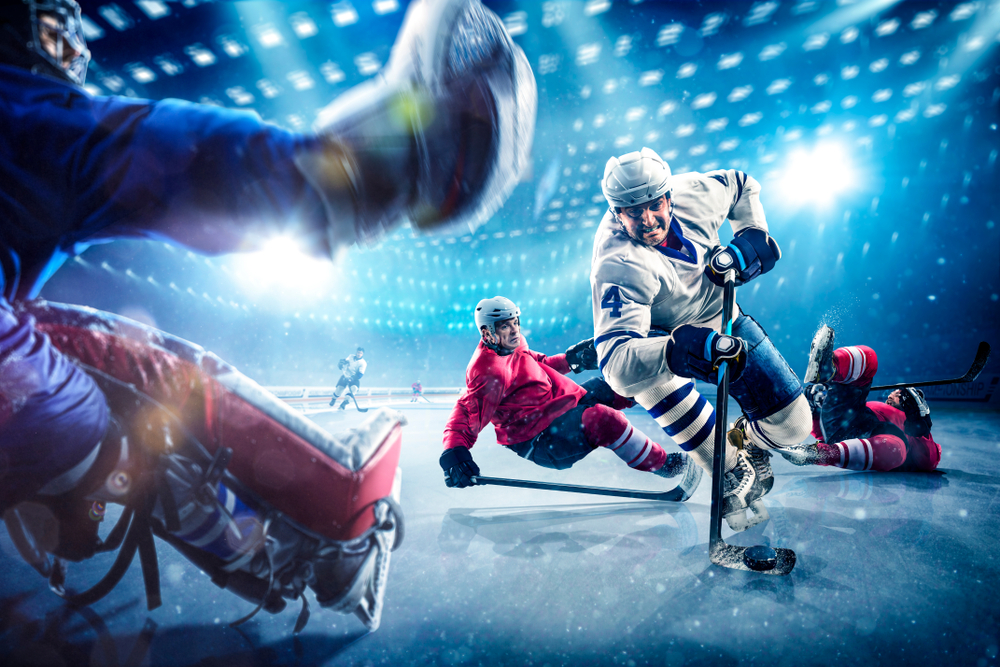Introduction:
Ice hockey, with its fast-paced action and intense physicality, captivates players and fans alike around the globe. For aspiring athletes looking to excel in this exhilarating sport, mastering essential skills is paramount. Whether you’re a beginner stepping onto the ice for the first time or a seasoned player honing your craft, developing proficiency in key areas can elevate your game to new heights. In this comprehensive guide, we’ll delve into the fundamental skills that aspiring ice hockey players need to master.
Skating Technique:
At the core of ice hockey lies skating – the ability to glide effortlessly across the ice with speed and agility. Proper skating technique is essential for executing plays, evading opponents, and maintaining control of the puck. Aspiring players should focus on mastering basic skating maneuvers such as forward and backward skating, crossovers, and tight turns. Building strength and endurance through off-ice conditioning drills can also enhance skating performance on the ice.

Stickhandling and Puck Control:
The ability to handle the puck with precision and finesse sets elite hockey players apart from the rest. Developing strong stickhandling skills involves mastering various maneuvers, including dribbling, deking, and receiving passes. Practicing puck control drills such as weaving through cones, navigating obstacles, and executing quick stickhandling moves can help aspiring players improve their hand-eye coordination and puck control under pressure.
Shooting and Scoring:
Scoring goals is the ultimate objective in ice hockey, making shooting proficiency a crucial skill for aspiring players to master. Whether it’s a wrist shot, slap shot, or snapshot, each shooting technique requires precision, power, and timing. Aspiring players should focus on refining their shooting mechanics, practicing accuracy drills, and learning to read goaltenders’ movements to increase their scoring opportunities on the ice.
Passing and Playmaking:
Effective passing is the cornerstone of teamwork in ice hockey, allowing players to move the puck efficiently and create scoring chances for their teammates. Aspiring players should work on improving their passing accuracy, vision, and timing through various drills such as breakout passes, saucer passes, and one-touch passing sequences. Developing strong communication skills and hockey IQ can also enhance players’ ability to anticipate plays and make smart decisions with the puck.
Defensive Skills:
In addition to offensive prowess, aspiring ice hockey players must excel in defensive play to contribute to their team’s success. Defensive skills such as positioning, stick checking, and body contact are essential for disrupting opposing players’ attacks and protecting the goal. Aspiring players should focus on mastering defensive techniques such as angling, gap control, and reading the play to anticipate opponents’ moves and effectively defend against scoring opportunities.
Physical Conditioning:
Ice hockey is a physically demanding sport that requires strength, speed, and endurance to compete at a high level. Aspiring players should prioritize physical conditioning by incorporating strength training, cardiovascular exercises, and agility drills into their training regimen. Building a strong foundation of physical fitness can improve players’ performance on the ice, reduce the risk of injuries, and enhance their overall athleticism.
Mental Toughness:
In addition to physical skills, mental toughness is a critical attribute for success in ice hockey. The ability to stay focused, resilient, and composed under pressure can make the difference between victory and defeat. Aspiring players should cultivate mental toughness through visualization techniques, goal setting, and positive self-talk. Developing a strong mindset can help players overcome adversity, adapt to changing game situations, and perform at their best when it matters most.
Nutrition and Recovery:
In the high-intensity world of ice hockey, proper nutrition and recovery are often overlooked but crucial aspects of player development. Fueling the body with the right nutrients, hydration, and adequate rest can optimize performance, enhance recovery, and reduce the risk of injuries. Aspiring players should prioritize a balanced diet rich in lean proteins, carbohydrates, healthy fats, and essential vitamins and minerals to support their training regimen and overall health. Additionally, incorporating recovery strategies such as stretching, ice baths, and restorative sleep can help players recover faster, minimize fatigue, and maintain peak physical condition throughout the season. By adopting healthy lifestyle habits and prioritizing self-care, aspiring ice hockey players can maximize their potential on the ice and achieve long-term success in the sport.

Conclusion:
Mastering the essential skills of ice hockey requires dedication, discipline, and perseverance. Whether you’re striving to become a top-tier athlete or simply aiming to enjoy the game to its fullest, honing your skating, stickhandling, shooting, passing, defensive, physical, and mental skills is essential for reaching your full potential on the ice. By focusing on these fundamental aspects of the game and committing to continuous improvement, aspiring ice hockey players can embark on a journey of growth, development, and success in the exciting world of ice hockey.

